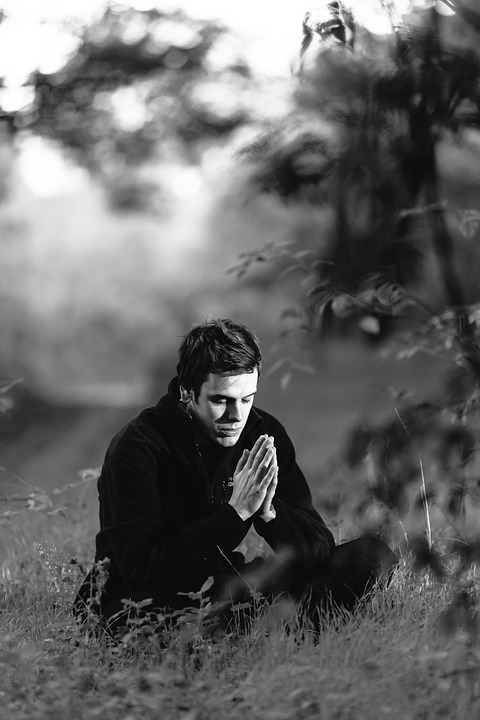After studying spirituality for a large chunk of my life, it has become clear that much of the time, we are not in touch with who we really are, or what we really want.
We too often say things without reflecting on what they truly mean for us and why we are interested in pursuing them. These are important things to consider when we realize that our time and energy are both finite resources, so it’s helpful to make sure we are investing them in the most efficient and effective way possible.
What if what most people label as spirituality is in reality an exaggerated and overly imaginative attempt at self-psychotherapy, which is appropriated for the projection of our insecurities and agenda?
What if we are actually deeply biased, self hating, self absorbed, and manipulative people who are largely only interested in furthering our own agenda with the hopes of curing an internal feeling of lack or trauma?
Consider the following possibilities.
If a teacher or teaching helps us discover the self we already believe that we are, then it’s likely that we will feel great, or really “resonant.”
If a teacher or teaching points at the part of us that we’ve barricaded off, are unaware of, or have demonized, then it’s likely the response will be an emotional, limbic-fueled justification of what we already know to be true. Perhaps we should stop and ask, well, how is that working out? Are we really content and grounded? Are we labeling ourselves as broken or needing to be fixed in some way?
Another thing to consider is that if we are labeling ourselves as broken or needing to be fixed, how can we trust the information coming from that self which we are believing is broken? Quite a sticky situation indeed.
The degree to which a teaching can validate what we already know is the degree to which we might feel good.
Could it be possible that our usual approach to spirituality and self help is:
Validate and help me discover the self I already know and believe I am. Tell me what I already believe to be true, just in a more exaggerated, elevated, and imaginative way. In other words, please help me feel okay about myself. Please don’t mention anything I don’t feel okay about or can’t relate to—I choose only to approach situations based on my definition of myself and the world. If you seek to challenge, expand, or examine my approach or core beliefs, then I will react emotionally or simply shut down, deflect, or change the subject.
This approach might be problematic if we consider that divinity and spirituality can be found right here in our simple human experience and we don’t need to do anything to have it.
There is nothing to achieve. There is nothing or no one to improve. There is no one to be saved because there is no one who is dirty. Perhaps all we really need to do is begin to remove the barriers we’ve constructed and to see things and ourselves as they actually are. Perhaps we can find ways to get off the hamster wheel of “doing” a “thing” because it will maybe produce a result one day.
Maybe it’s more helpful and healing for us to get in touch with and become aware of all of those biases which we think are reality and see if they even hold up to a little bit of observation, experimentation, and scrutiny. See if all of those things we take for granted are really true or just something that we take for granted.
In this way we can start to see just how mechanized, hierarchal, salvational, self centered and morbid our thinking really is and subsequently, how violent and oppressive we think and behave toward ourselves on a regular basis.
Getting in touch with these basic foundations can help us cut through much of the illusion we have bought into while also opening a door for us to relate to ourselves and others from a much deeper and more effortlessly authentic place.
What I’ve come realize is that many of the things we desire are already found in our simple experience, yet it is our striving and conditioning which actually pushes the thing we want further and further away.
We often play complex games where we put things off, convincing ourselves that: I’m not good enough yet, I need to meditate more, or I’m not spiritual enough, but maybe one day I might be—if only.
By doing this, we fail to see the basic and fundamental cohesion and integral quality of our everyday, normal experience. It’s the loss of this integrity which causes us to fracture ourselves and live our lives in our imagination or in a version of reality that isn’t true.
For me, this is a fascinating thing to observe and study with in my own life. I can see so many examples of how I’ve gotten carried away and controlled by something that I’d imagined, even when it contradicted my experience and common sense.
What I’ve realized is that living this way tends to be a waste of time and it takes us away from what we really want. I’ll go out on a limb here and assume that what we all want, deep down, is a simply enjoyment—regardless of what we’re doing. Perhaps it’s possible then that the highest expression or aim of any practice is enjoyment and that idealizing or elevating a thing takes away from feeling enjoyment, thus feeding the desire rather than the thing we’re really after.
By enjoyment, I mean a simple, basic, and unassuming enjoyment. Not divine ecstasy, orgasmic bliss, or mystical states of consciousness—just a simple feeling of enjoyment, because in a world where everything is temporary and transient, what else do we really have?
Author: Brandon Gilbert
Editor: Catherine Monkman
Photo: Pixabay









Read 0 comments and reply